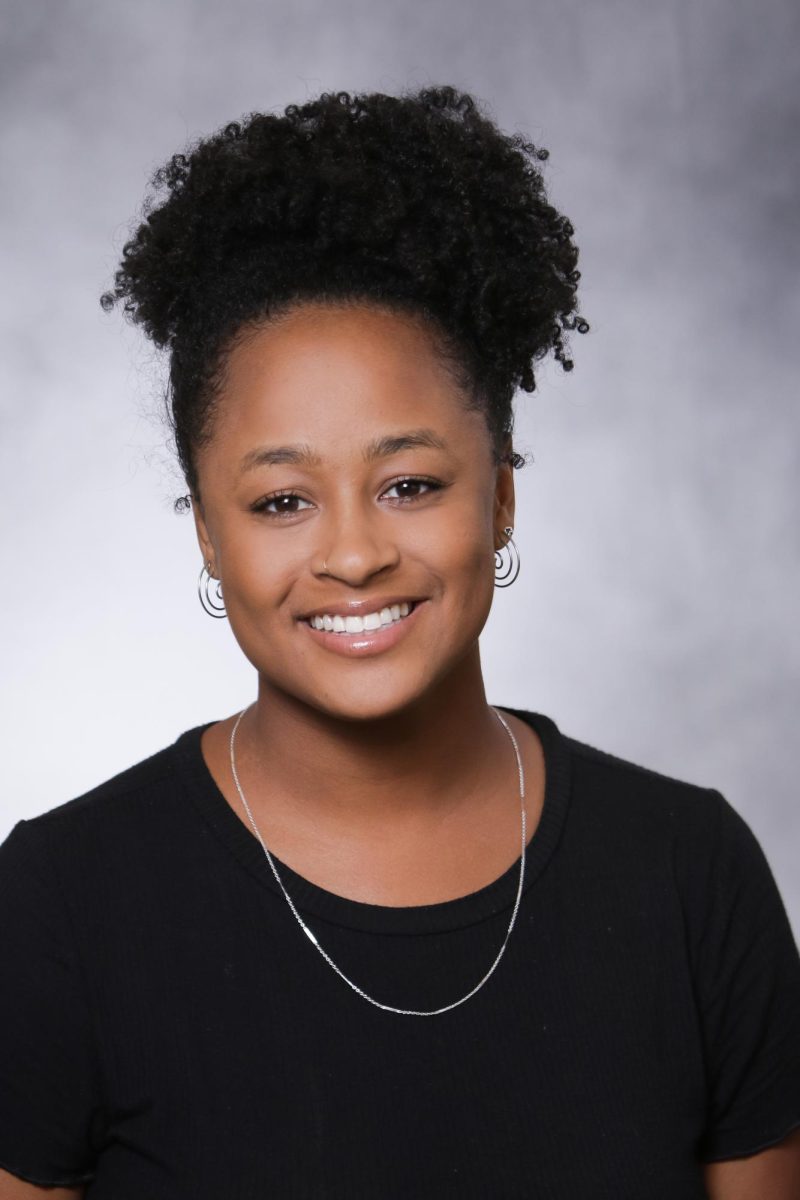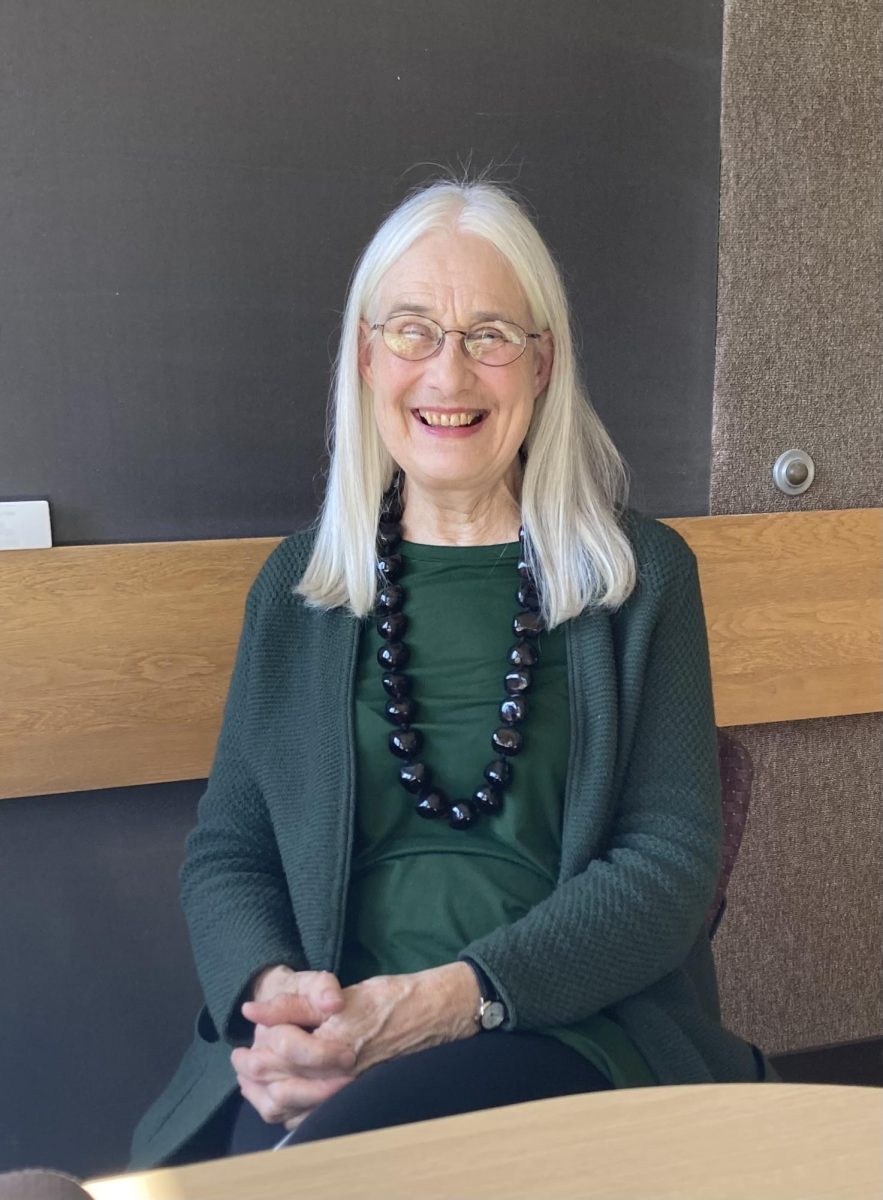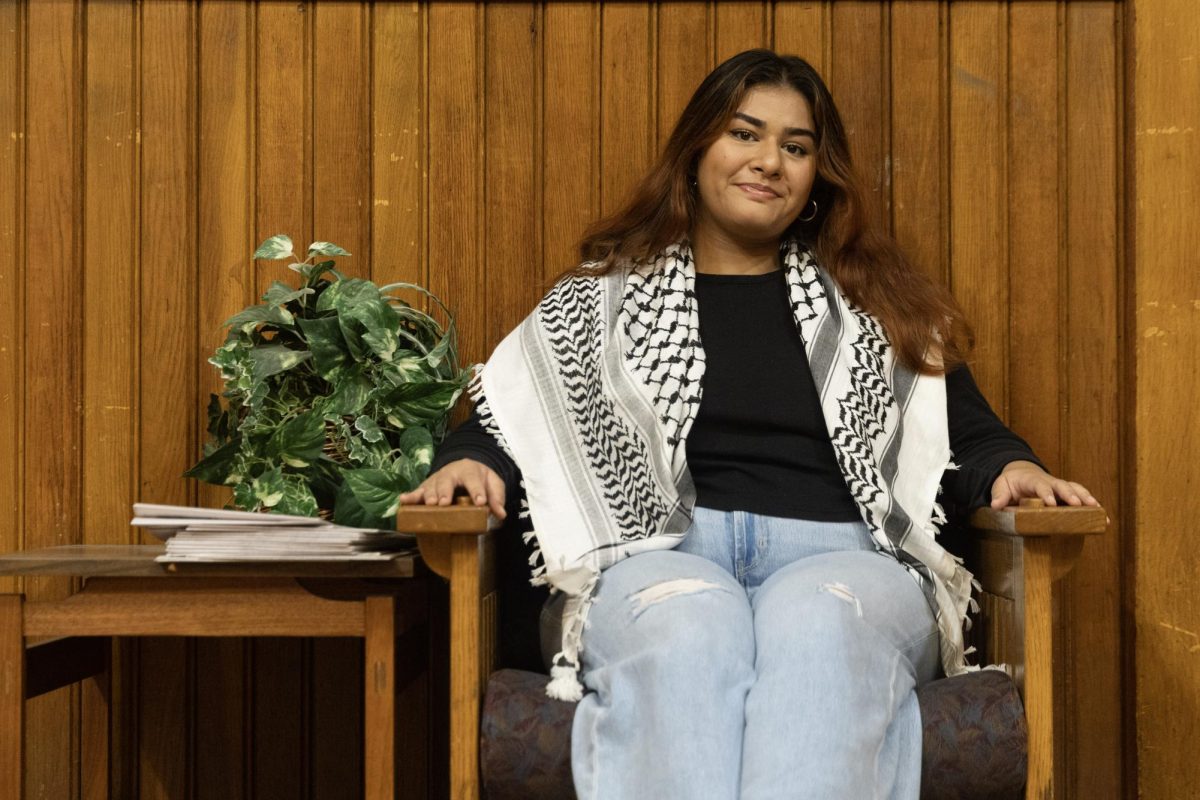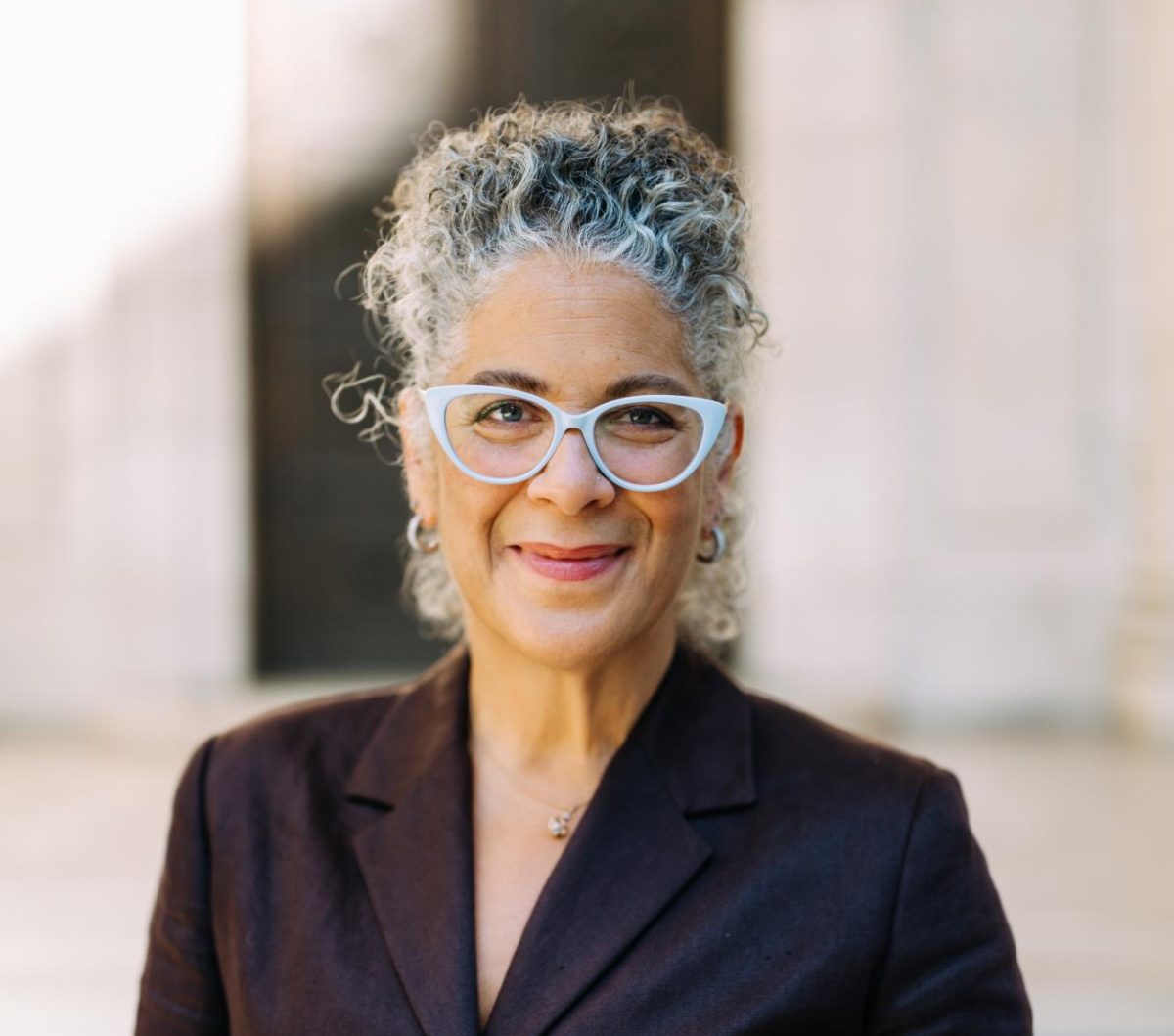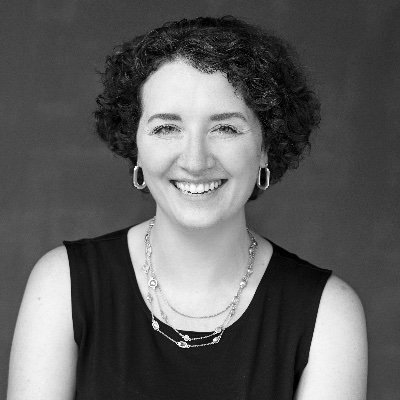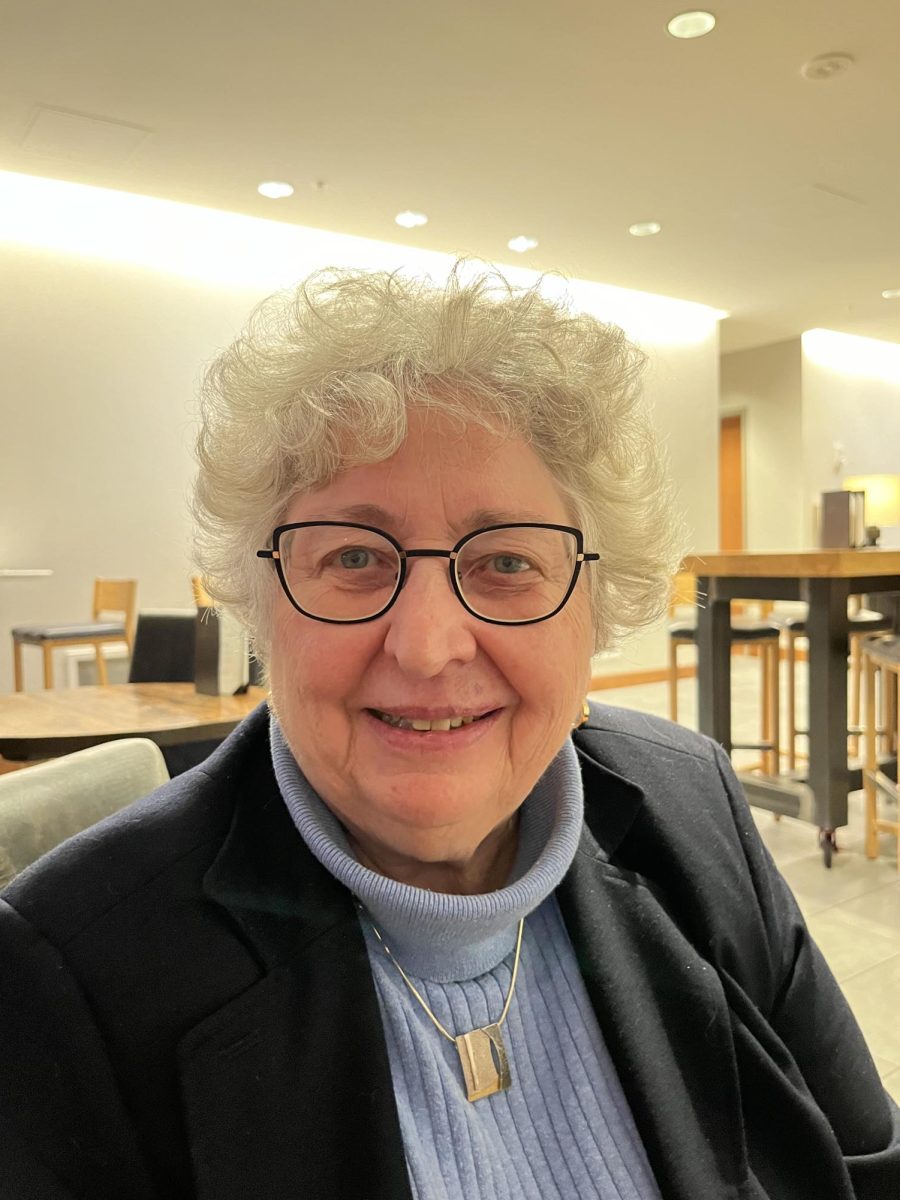Melissa George, OC ’12 is a lecturer and the director of Afrikan Heritage House. After earning her Bachelor of Arts at Oberlin College, she earned a master’s degree at Rutgers University and worked in community-based participatory research. Prior to working at Oberlin, she worked on CDC-funded public health programming with the Morehouse School of Medicine Prevention Research Center and Georgia’s State Department of Public Health.
This interview has been edited for length and clarity.
How did you get involved with Afrikan Heritage House? What was your journey to becoming the director?
So I lived in A-House when I was a student here. I lived there my first two years, and I also just grew up in A-House. I am from Oberlin born and raised, so I’ve grown up coming to stuff on campus, and everything that I went to on campus was basically at A-House. So I have always loved A-House. So recently, after I moved back from Atlanta, this position opened up and a few people reached out to me and told me to apply. So I did.
What are the main responsibilities of your position? What are you tasked with?
I handle a variety of programmatic responsibilities, which I really enjoy. I also teach a class, which I’m still getting used to. In addition to teaching and managing programs, I collaborate closely with the administrative team at A-House. This team includes program assistants and resident assistants. Together, we plan events for the house. I consider myself the program coordinator, as I help coordinate all the moving parts. We discuss ideas, develop the annual program, and review weekly tasks to ensure everything gets done.
Why do you think having A-house is important, both for the larger Oberlin community and specifically for Black students?
I believe the Afrikan Heritage House plays a unique role in the Oberlin community. To my knowledge, we are the only college that has a dining hall and a dorm specifically dedicated to Black students, providing a safe and supportive environment. While other institutions may have a Black student union or a multicultural resource center, A-House combines both a dining hall and residential space, and is connected to the Africana Studies department, and all of these things are focused on uplifting and celebrating Black students. A-House has historically served as a cultural hub, not only within Oberlin but also Lorain County. It hosts speakers and events open to everyone, fostering a strong connection between the College and the community. While it is a safe space for those who live there, it also serves as a safe space for Black students across campus. Historically, Black students often felt uncomfortable living anywhere else on campus, which is why A-House was established alongside the African American Studies program — previously known as Black Studies. We created our own space, and although we’ve made progress, A-House will always hold significance as a safe haven for Black students.
How does being director of A-House translate into your teaching?
That’s a great question. I teach in the Africana Studies department, so there is definitely a connection. This year, I’m leading a class titled, A Dark History: Race, Ethics, and Human Medical Experimentation on Black Bodies in the U.S., while also working with Black students in A-House. It is a very enriched experience. Engaging with Black students outside the classroom informs my approach, helping me center Black education and community in my teaching. I can discuss topics related to Black identities while actively working with Black students, which is incredibly fulfilling. Additionally, my class explores forms of resistance within Black communities, and I see A-House as a model of that resistance. Our ability to design programs that prioritize Black voices reflects a struggle that hasn’t always been recognized. While there are differences between my teaching and my role at A-House, the experiences from both areas certainly inform and enhance each other.
What’s your favorite part about working at A-House so far, and what are you looking forward to?
My favorite part so far has been witnessing the results of our planning. We’ve organized three events — welcome, a bonfire, and first-year speed-friending — and seeing everyone enjoy them has been incredibly rewarding. The welcome event, in particular, felt like a true celebration of fellowship and connection, and it was gratifying to see all our hard work pay off. I anticipate that seeing the outcomes of our events will continue to be my favorite aspect of this role. Additionally, I feel a sense of nostalgia every time I walk into the house. I’m especially looking forward to alumni weekend, specifically the Oberlin Alumni Association of African Ancestry alumni weekend. Having never attended a Black Alumni Weekend as an alum, it’s exciting to experience it now as the director. Overall, I’m eager to keep developing programs that strengthen the bond between the community and the College.


